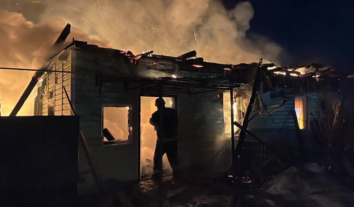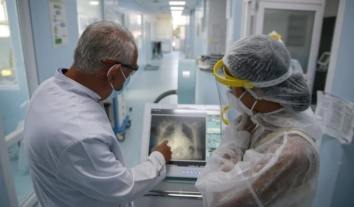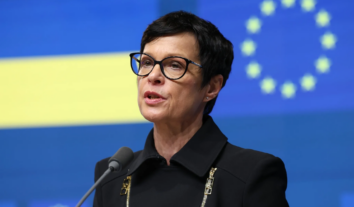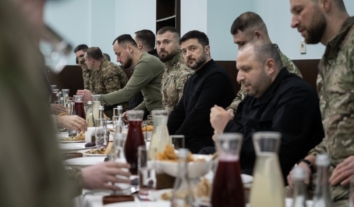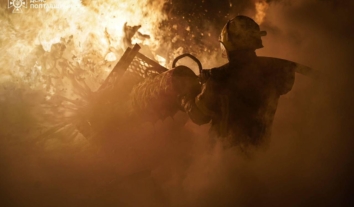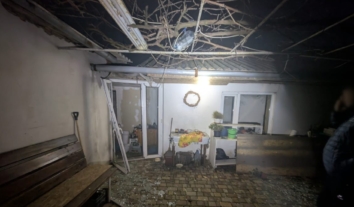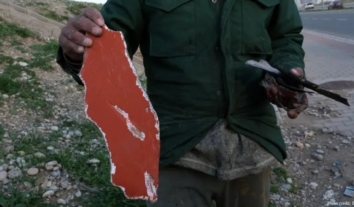Criminal cases trumped up against volunteer soldiers
The unreasonably large number of criminal cases has been opened against the members of the Ukrainian volunteer battalions. Human rights activists see this as a trend of political persecution.
The Kharkiv Human Rights Group experts are so far gathering information about such cases to puzzle out how exactly they should be qualified. In particular, it refers to volunteer soldier and journalist Yuri Hukov, who is charged with committing an offence under the Part 3 of the Article 187 of the Criminal Code of Ukraine (“Brigandism”).
As a reminder, June 4, 2014, being a member of the Aidar volunteer battalion, Yuri Hukov and several other volunteer soldiers received a verbal order from the commander to detain a person, suspected of separatist activities, and to deliver him to the village of Troitske (69km west of Luhansk) to the battalion. The soldiers entered the house of the suspect, but having seen his daughter and heard the cries of his wife, they did not detain the man by force and left. Later Hukov found out that one of the group members had taken a laptop and a mobile phone, according to the human rights activists.
The suspect called the police. Hukov and his fellows were detained, and laptop and phone were returned to the owner. The victim filed a crime report nine months later. Hukov was arrested nearly a year ago, when he came to the police to file a report on murder of his wife, who had been tragically killed in a war zone.
According to lawyer Viktoria Deyneka, there are no components of taking possession of property of another person in Yuri’s actions. He was indeed a participant in the event, but he did not threaten anyone and did not take the property. That is, Hukov did not intend to commit seizure for profit. Both the prosecutor’s office and the court ignore the fact that the mentioned actions occurred under circumstances of threat to the territorial integrity of the state and qualify the actions of Yuri Hukov as ordinary brigandism.
In addition, the strictest pre-trial preventive measure, detention, was imposed on Hukov. The reason for imposing such a measure is a suspicion of felony. The prosecutor, who files a motion for imposition of preventive measure, should prove that this suspicion is justified. In turn, the judge should make certain that it is not possible to impose a less restrictive measure as the suspect could obstruct the investigation, hide, or destroy evidence. In addition, other circumstances, such as reputation and presence of minor children, should be taken into account. By the way, Hukov has 12-year-old, 7-year-old and 4-year-old children.
However, the bail hearing, which was held in the Pechersk District Court of Kyiv, lasted for only three minutes. During this time, judge Oksana Tsarevych did not found out any circumstances.
“The imposition of the strict preventive measure is disproportionate,” Viktoria Deyneka says.
Suspicion is not the reason for imposition of strict preventive measures, comments Yevhen Zakharov, the Kharkiv Human Rights Group Director. The prosecutor’s office violated the Part 3 of the Article 5 of the European Convention on Human Rights, the human rights activist believes.
According to Kharkiv Human Rights Group expert Oleksandr Pavlychenko, a really dangerous problem in this situation is the fact that the volunteer soldiers acted in the village of Troitske, in the so-called legal grey area. In 2014, there was virtually no full jurisdiction of the state, the law enforcement agencies did not work. The volunteer soldiers performed their duty to protect the integrity of the state, besides they had a verbal order from the commander. As a last resort, the joint and several liability should be applied here, Pavlychenko believes. The commander’s order led to committing of offense, so he should be held liable together with all the participants in those events, he said.
“Personally I see the signs of political persecution here. However, these conclusions are preliminary. It is necessary to examine the situation to say for sure,” Yevhen Zakharov said.

